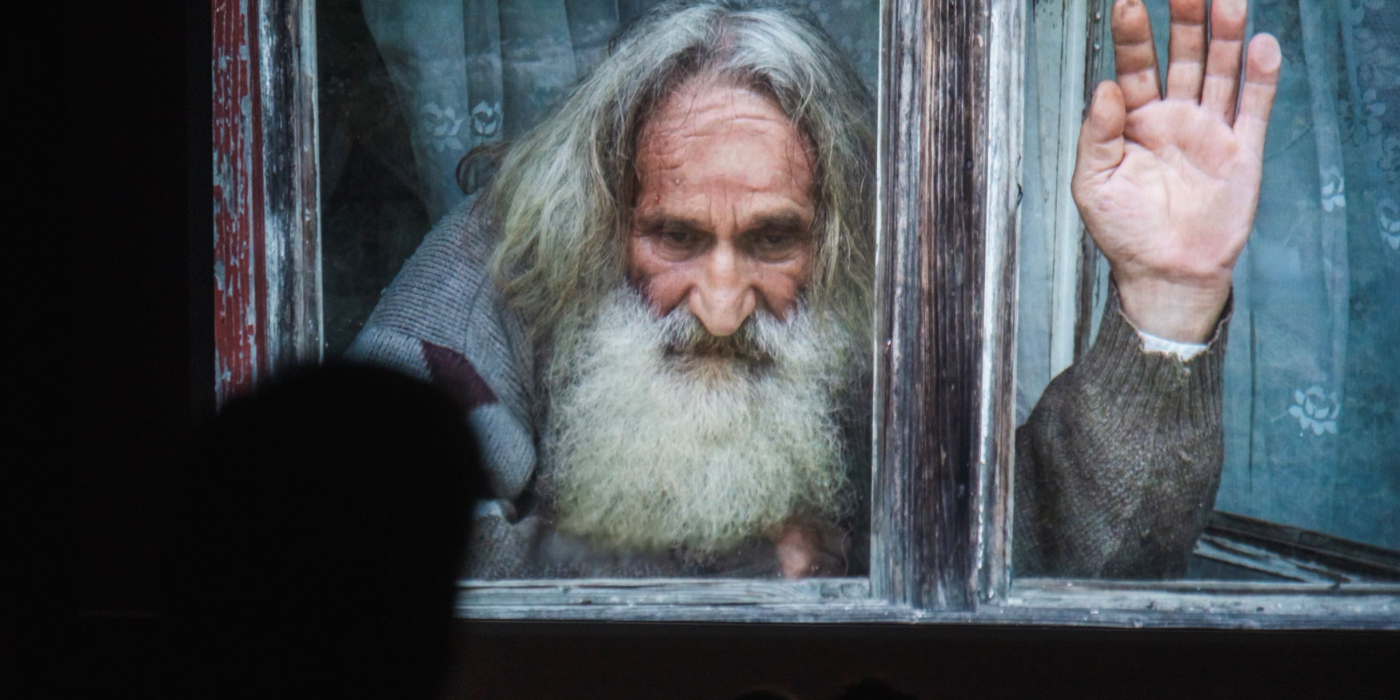04/08/2024
A man and a horse walk through a dreary and misty landscape, continuing their daily routine that maintains life as it is, aligning what remains of nature and people.
This year’s Balkan Dox begins with Maja Novaković’s At the Door of the House, Who Will Come Knocking, a lengthy and suspenseful narration on solitude and self-discovery amidst the crosslines of political pasts and uncertain futures. Opening with a lightly snowy landscape, we see the house in the woods, waiting for its story to be told.
There is a distinctly poetical quality to the relationship between the main character, Emin, and his horse. A sense of liberation comes during a time of bliss and uncertainty, yet this liberation embraces the full spectrum of meaning and restores life to its constant quality of quietness and steadiness.
The premise of being left behind pervades the Balkans due to migration, economic changes, politics, and generational shifts, transforming once vibrant communal spaces into a state of despair and obsolescence. The crisp lights piercing through Emin’s unfolding solitude reflect warmly on his face, revealing both joy and worry within his routine. His experiences echo the most Balkan aspects of identity, often hyper-symbolized and repeated as a way of characterizing someone living in the region, even as a foreigner might perceive it.
Yet, there is so much more to uncover. The film reveals qualities of perseverance and friendship within the idyllic scenery. Everything is meant to serve and repeat its function to sustain life, yet the space feels heavily inhabited. We follow Emin, who might seem like a character from a Balkan epic.
The burning stove, the snowy roads, the sizzling of frying eggs, some konjak or rakija, and an animal to care for amid a harsh and untamed landscape compose the setting of an ideal Balkan tale. This portrayal has been cherished as an artistic choice time and time again. In this case, however, these Balkan tropes intertwine with the human experience of loneliness and adapt a poetic narration to pieces of life often celebrated en masse.
The traditionally woven carpet, tinted with snowflakes following a river, metaphorically dissects the paths we take home each time we go outside. Novaković’s keen interest in the poetics of imagery through cinematography is reflected in the breathy and dynamic shots, which pulse slowly across the screen, elaborating on Emin's figure amidst his vast surroundings with precise color and detail.
In the few sequences of his talks, he points out the necessary information as if it were a diary of well-being, in a telegramic manner. He is feeling good. He is sick. Everything is ok. Everybody is gone. Everybody runs to go somewhere else. Maybe where the landscape is not as frank as it is in front of him and he wonders: Where is everyone going?
This is a way of life, trying to search for answers and consolation within the solely thinking mind and then dreamlike sequences of children roaming through the scenes speak in tales and well known nursery songs, singing to nature, to creatures, to sleep and life.
In a conversation with the director of the documentary at DokuKino, she delved more into the relationship of the character with his surroundings while shooting the whole documentary by herself with a camera, a lens and a tripod. To many it spoke in the sense of the layered intimacy that this documentary depicts. She puts to merit the fact that her being from the same area as Emin, made the trust bond more imminent and easy to work with. A very important part of the language in this documentary is the music, which was carefully and skillfully designed by Luka Barajević.
It is a documentary that urges us to see life in its slowest pace affected by age, while the title upholds the mystery and the suspense sinking in throughout the documentary. We invite you to see this reflection of solitude with patience and curiosity and most importantly, with a keen eye on what remains of a human that makes nature its best pal.
It’s next screening will be at Lunar Cinema, a majestic open cinema that will alleviate the magic within this documentary, starting on Aug. 8 at 22:30.
By: Blerina Kanxha
Photo: Furkan Çelik



